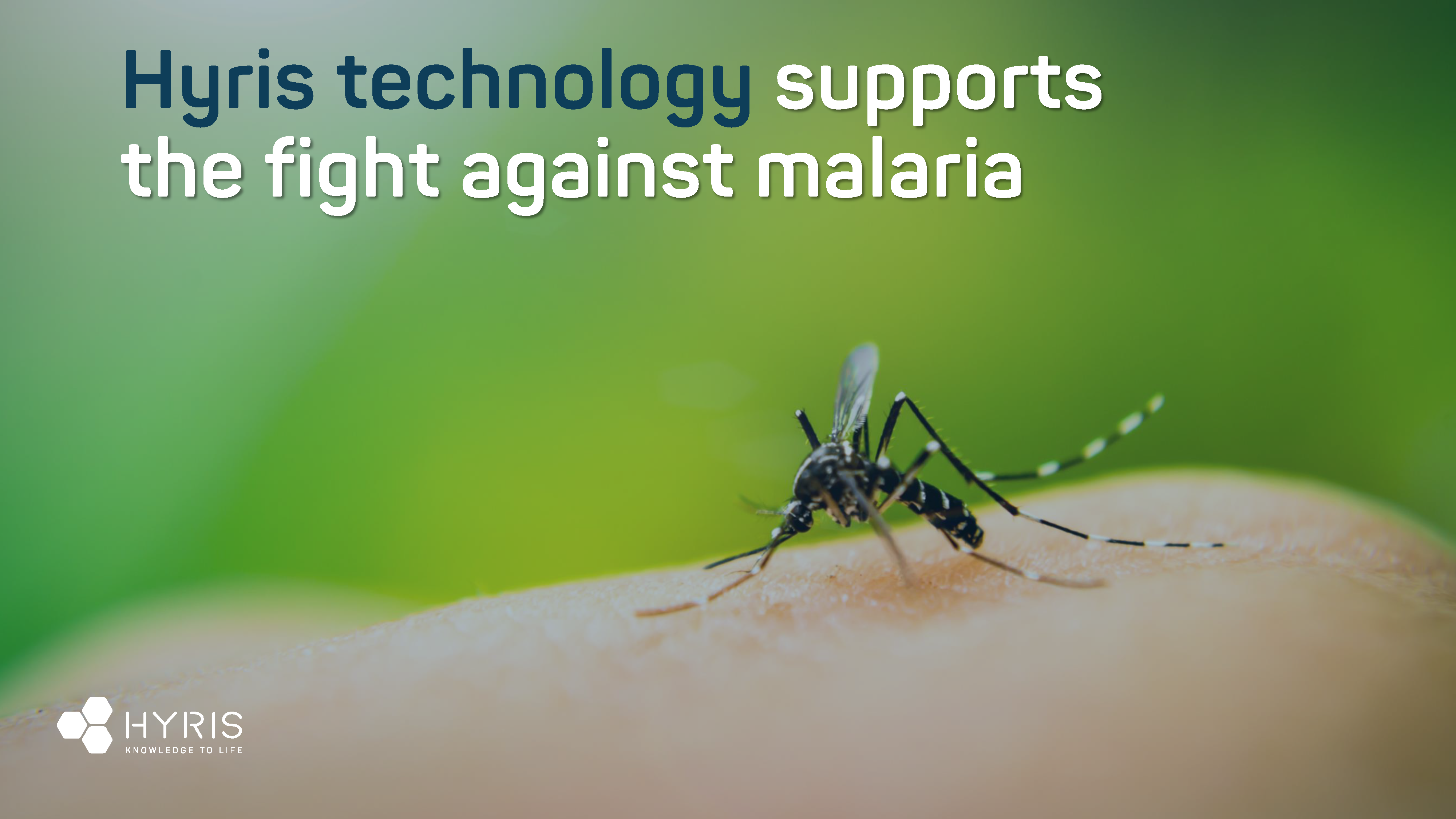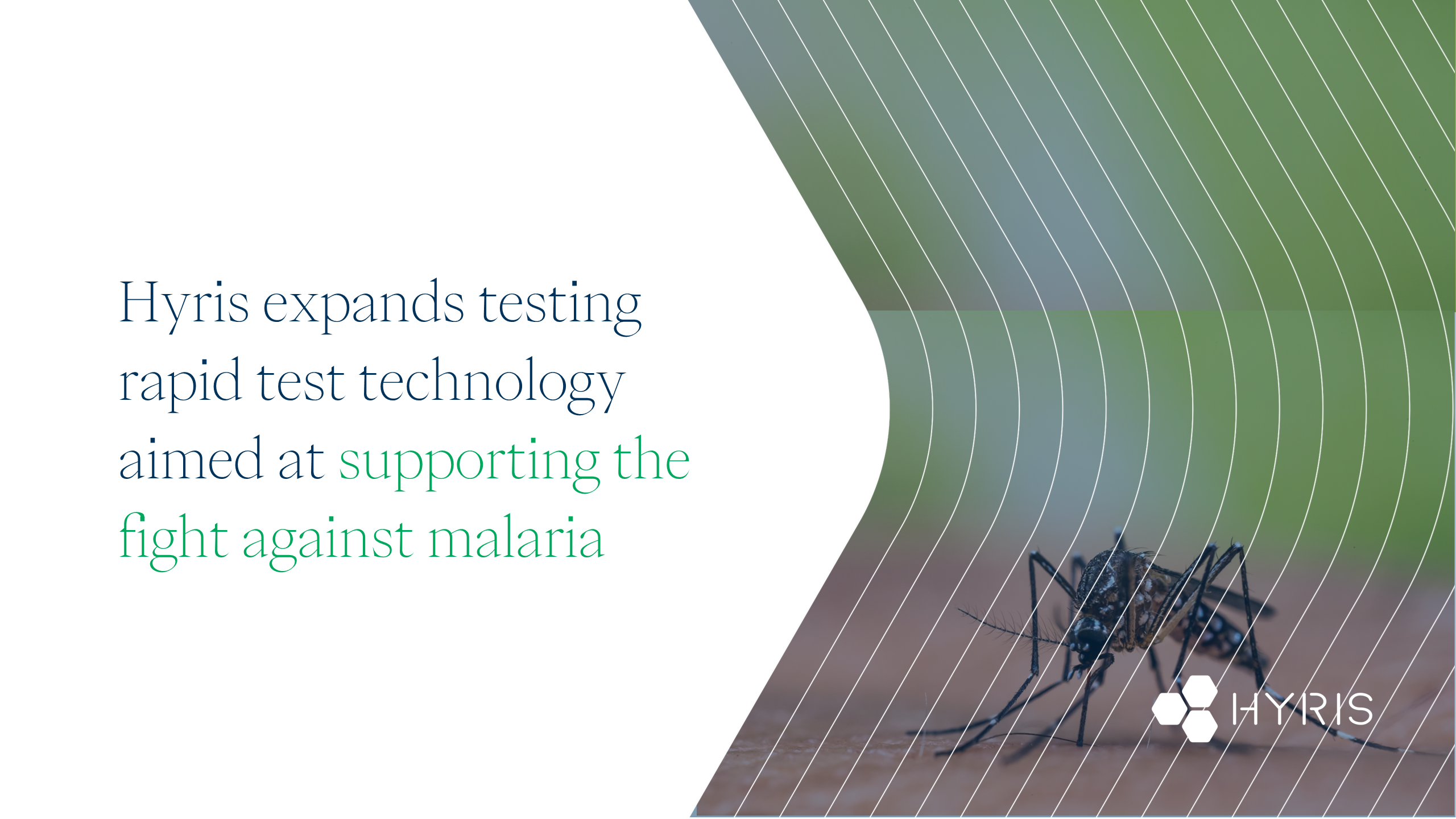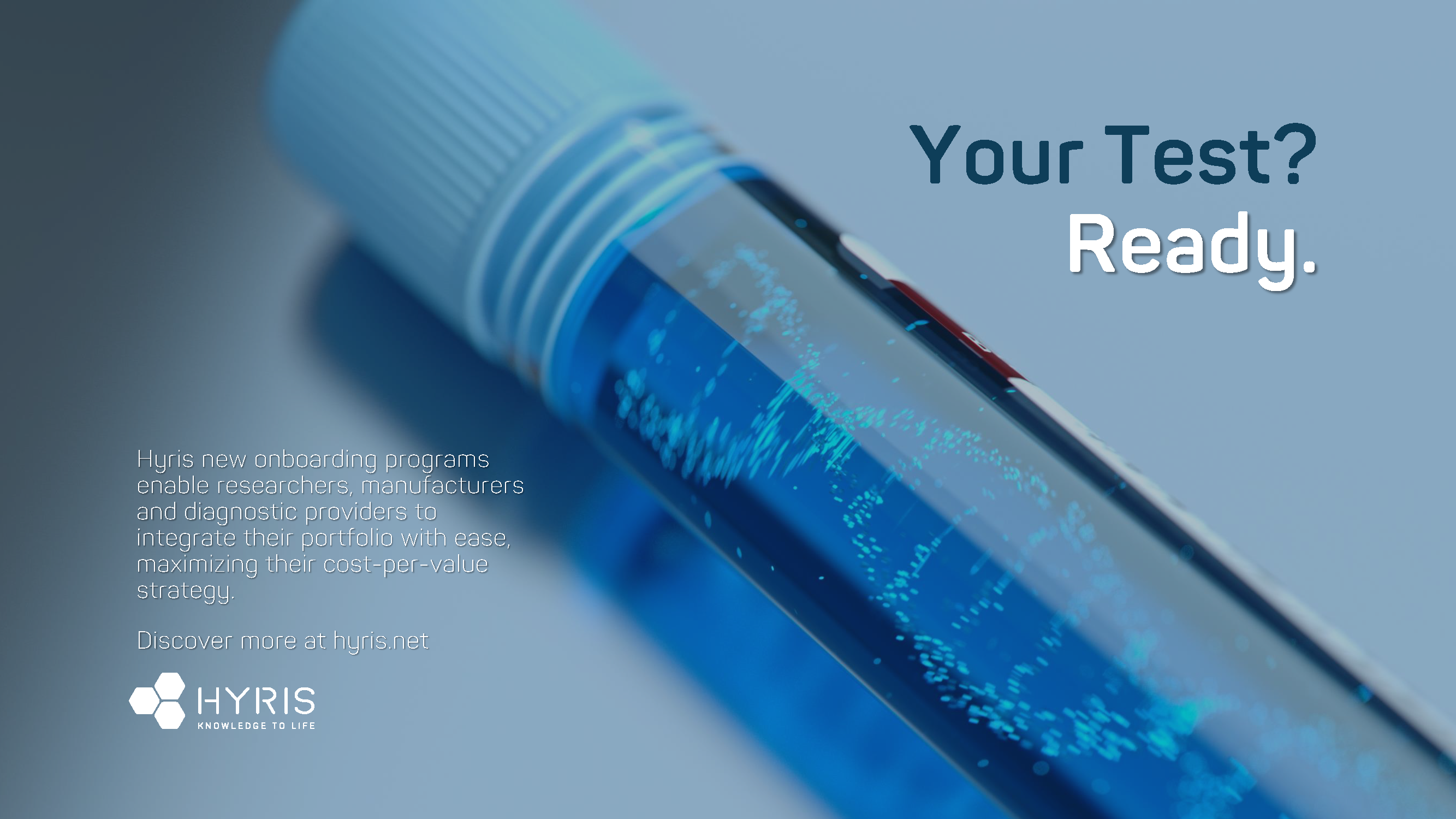

Hyris technology supports the fight against one of the world’s deadliest diseases, malaria.
Climate change and global warming greatly boost viral outbreaks, as confirmed in a scientific study, highlighting the need for better pandemic readiness and disease surveillance.
Indeed, tropical diseases caused by the Malaria parasites and Zika and Dengue viruses, to name but a few, are still affecting a large portion of the population in the African, Asian and American continents. Over 2/3 of the global population is currently at risk from these diseases. This challenging situation requires new approaches to overcome the difficulties related to illness control in disease-endemic areas.
Mosquito-killing insecticides remain key in preventing malaria transmission in sub-Saharan Africa and other malaria-endemic parts of the world. However, mosquitoes often develop resistance to insecticides, rendering them ineffective in disrupting the spread of the disease. Therefore, early and cost-effective detection of mosquito resistance to insecticides is essential for planning and implementing effective malaria control strategies.
To design and implement mosquito control campaigns, crucial use cases are:
- The actual presence of vector mosquitoes;
- their resistance to insecticides;
- the potential diffusion of dangerous pathogens;
- various other endpoints linked to the spread of diseases.
In reality, rapid and accurate surveillance of the mosquito’s resistance to various types of insecticides is hard to achieve, especially in remote areas that lack sophisticated laboratory infrastructures and effective transport routes.
To face these challenges, joint research between Hyris and Johns Hopkins University developed a new method to perform RT-PCR diagnostics directly in the field, leveraging the portability, connectivity and versatility of the Hyris System™ for better surveillance of mosquito-transmitted diseases. This accurate technology has already been applied to establish molecular assays that verify the presence of dengue and zika viruses in the vectors.
Professor George Dimopoulos lead the research team at the Johns Hopkins Bloomberg School of Public Health and the Johns Hopkins Malaria Research Institute, together with Professor Charles Wondji at the Centre for Research in Infectious Diseases in Yaoundé, Cameroon. A Bill & Melinda Gates Foundation Grant to Johns Hopkins University supported the Research Project.
The joint team has been working since 2021 to conduct laboratory R&D and field testing in malaria-endemic areas of Cameroon. This is enabled by the distinctive features of the Hyris System™ for molecular testing based on a simple portable battery-powered device rather than a heavy laboratory-based benchtop machine.
"This test is deployable right in-field", explains Lorenzo Colombo, CTO and Managing Director at Hyris, "thanks to the characteristics of the Hyris System™, our suite for portable and distributed diagnostics and remote monitoring. Our technology enables researchers to collect a mosquito or blood sample in the field and conduct the molecular diagnostic assay right there instead of having to bring samples back to a central lab.”
Colombo highlights why this technology is a game changer for distributed diagnostics. “As the testing device is battery-operated, it requires no electrical grid, and thus, it can connect to the internet from anywhere, sending the data to a central lab for further analyses. This enables real-time acquisition of infectious disease-relevant data from the field or point of spread of diseases. Furthermore, the technology is user-friendly and requires almost no specialised training, allowing its fast distribution in case of an outbreak.”
Portability and connectivity have always been crucial challenges related to testing in remote areas, but there were more to overcome to make the entire distribution chain sustainable. Stefano Lo Priore, Founder of Hyris and Chairman of the newly integrated UBM Group, further explains the advantages of this new test. "The necessity of cold chain has always been a critical roadblock for any test distribution in remote areas. After months of thriving, we finally devised a sound solution, as this new malaria test does not require any cold chain for shipping, making it one hundred per cent field-deployable”. Lo Priore further highlights the distinctive features of this new technology, which will revolutionise testing in the most challenging conditions. “The newly developed Hyris technology of pre-filled dried cartridges enables running the diagnostic assay by simply adding the mosquito sample to a well already containing all other reagents, simplifying the testing workflow. The stability of the dried reagents enables their storage at room temperature for up to six months thereby not requiring freezers which are lacking at most sample collection sites in the field.”
After three years of activities and in-field testing in Cameroon, the project has timely come to a conclusion, also leveraging the availability of the Centre for Research in Infectious Diseases in Yaoundé, Cameroon, the in-field hosting partner of the project.
"Working closely with other scientists has been a great opportunity," recounts Francesco Buongiorno, Molecular Biologist at Hyris, "all while keep testing the new solution directly on the field." Buongiorno provides updates about the project's outputs so far. "The solution proved to perform as expected. The last months have been proving particularly productive, and we finalised the development stage by the end of 2023, as planned.”
The joint team is now working on specific follow-ups, broadening the network of in-field laboratories and partners. After the project's successful outcome, Hyris is fully supporting the Research Group to make this technology available for effective malaria transmission surveillance at scale. In particular, the team is currently exploring the path for nationwide deployment of the mosquito insecticide resistance surveillance system in Cameroon, something that would enable real-time informed decision-making on malaria mosquito control campaigns using the most effective insecticides only.
Nicola Basile, recently appointed CEO of UBM Group, remarks how such projects perfectly align with Hyris' commitment to developing advanced biotech solutions for critical issues. “The advantages of such an approach go beyond monitoring disease vectors in tropical areas and fighting against vector diseases. COVID-19 pandemic proved the need to find more efficient ways to manage outbreaks readiness and disease prevention,” he continues. “Hyris Solutions effectively supports health surveillance for many other diseases and public health threats, especially in the most challenging situations."
For more information, do not hesitate to write us at This email address is being protected from spambots. You need JavaScript enabled to view it.

Hyris expands testing rapid technology aimed at supporting the fight against malaria

Hyris signs a distribution agreement with GrowBIGogh

Hyris technology supports the fight against one of the world’s deadliest diseases, malaria.

Hyris fulfils its integration into Ulisse Biomed to give birth to a new international group ready to make its mark in the global biotech market.

Distribution agreement renewal with Biomol Laboratories, fostering the partnership in the field of personalised medicine

Hyris' signed a binding agreement for a reverse take-over, leading to a new integrated entity with Ulisse Biomed

Hyris' new onboarding programs support researchers and developers to launch testing kits.

Hyris Founder&CEO Stefano Lo Priore interviewed by Carter&Benson

Hyris and Singlabs signed a distributorship agreement for Singapore
